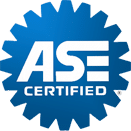10 ways to protect the investment you made in your car and to keep an older car running smoothly.
- Regular Maintenance: Follow your vehicle’s recommended maintenance schedule. This includes oil changes, filter replacements, tire rotations, and fluid checks. Regular maintenance helps identify and address potential issues before they become major problems.
- Drive Smoothly: Avoid aggressive driving habits like sudden acceleration, hard braking, and rapid acceleration. These actions put unnecessary stress on your vehicle’s engine, transmission, and brakes, leading to premature wear and tear.
- Keep Tires Properly Inflated: Check your tire pressure regularly and maintain the recommended pressure levels. Underinflated or overinflated tires can affect fuel efficiency, handling, and tire lifespan.
- Use High-Quality Fuel: Use high-quality fuel and avoid using low-quality or contaminated fuel. Poor-quality fuel can cause engine knocking, reduce fuel efficiency, and potentially damage engine components.
- Maintain a Clean Engine Air Filter: A clean air filter allows clean air flow to the engine, improving fuel efficiency and engine performance. Regularly inspect and replace the air filter as recommended by your vehicle’s manufacturer.
- Drive with Care on Rough Roads: Avoid driving over potholes, speed bumps, and rough roads at high speeds. These road conditions can cause damage to your vehicle’s suspension, alignment, and tires.
- Protect Your Vehicle from Extreme Temperatures: Extreme heat and cold can take a toll on your vehicle. Park your car in a shaded area during hot weather and use a windshield sunshade. In cold weather, allow your engine to warm up before driving and use winter-grade fluids when necessary.
- Keep the Exterior Clean and Protected: Regularly wash and wax your vehicle to protect the paint from oxidation, rust, and other environmental damage. This also helps maintain the resale value of your car.
- Follow Proper Storage Practices: If you’re storing your vehicle for an extended period, follow storage recommendations such as filling up the gas tank, removing the battery, and adding a fuel stabilizer. This helps prevent fuel system issues and battery degradation.
- Address Issues Promptly: If you notice any unusual sounds, vibrations, or warning lights, don’t ignore them. Addressing issues promptly can prevent further damage and expensive repairs.
By following these tips, you can extend the lifespan of your vehicle and enjoy trouble-free driving for years to come. Remember, regular maintenance and responsible driving habits are key to keeping your car in excellent condition.





